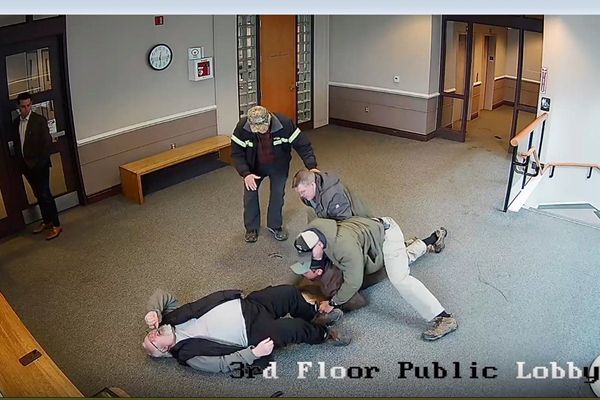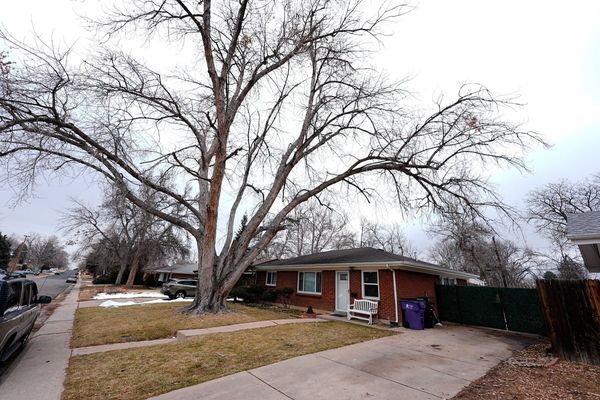
“This kind of motivation can make miracles,” says Paulo Fonseca as he describes the glint in his Lyon players’ eyes before the visit of Manchester United. It is a clash of two giants who have lost their way – although something, at least, is stirring in France’s second city. They have won eight of their 11 games since Fonseca’s arrival less than two and a half months ago and that tells only part of a story with little precedent.
The Europa League quarter‑final first leg on Thursday will be a rare opportunity for Fonseca to do what he enjoys best: manage his team from the technical area, cajoling and tweaking from the sidelines. Early in March he was given a nine-month ban from domestic games for aggressively confronting the referee Benoît Millot towards the end of a win against Brest. He is barred from the dugout and from communicating with his bench until 30 November, but will be allowed access to the dressing rooms and tunnel area from 15 September. Recent Ligue 1 matches have been taken in from the press box. Uefa-run fixtures offer relief and he is still getting his head around a suspension with a duration which could have jeopardised his career.
“The only positive point in this entire situation is that I get another perspective to watch the game,” he says. “It’s easy to see from where I am now. The most difficult thing is not being allowed contact with the players before or during games, or at half-time. It’s harder to manage things. But we are well organised and have made good preparations. Even with me far away, things are going very well.”
Nonetheless Fonseca feels he has been hung out to dry. The footage from that encounter with Millot is not pretty. It came during a VAR review of a potential penalty for Brest and anyone who saw Fonseca shouting in the official’s face, pushing his head towards him, would expect an appropriate sanction. He knows his behaviour was inexcusable but feels the incident became a lightning rod for wider issues within France’s top flight. A week previously the Marseille president, Pablo Longoria, had been suspended for 15 games after accusing referees of corruption; in a febrile climate, Fonseca senses he erred at the worst possible time.
“Unbelievable,” he says of the ban, which was handed down within three days of his offence. “Of course what I did wasn’t correct and I should pay for it. But I screamed at the referee, I didn’t have any contact with him or commit any [violence]. They want to make an example of me for French football, I think I’m paying not for what I did but for the moment we are in. But I shouldn’t be an example, I should just pay for what I did.
“It’s unfair but we are fighting against this decision and I believe things can change. It’s difficult to understand, when we see so many of these situations in all countries and nobody received a penalty like I did.”
Fonseca’s appeal will be heard next month. Jürgen Klopp has been among those to speak out in his favour and Fonseca is grateful for the backing of John Textor, Lyon’s owner, who might have been excused washing his hands of a coach he had only just recruited. Things could easily have gone another way. “That’s what made me strong, and want to continue,” he says. “It’s amazing. When you have so much support you have to fight, to believe in what you can do for the club.”
His season had already been anything but dull. Last June he was appointed by Milan but lost his job four days after Christmas. They were eighth in Serie A, a place higher than their current standing under Sérgio Conceição. He does not want to engage in detail about that half-year or the circumstances of his departure, largely out of respect for his compatriot, save to make clear he would have liked a longer run.
“We can see the past decade of Milan, they won Serie A once,” he says. “It’s a difficult moment for them. I had a lot of pleasure being there and I’m really sorry I didn’t have time to continue my work. I think the mentality in Italy is totally different from England, where you give time to the coach. But it’s the way they live football there.”
From up high or not, he has regained momentum quickly at Lyon. The win on Sunday against another former employer, Lille, brought them to within two points of a return to the Champions League. Once staples at the top table, they have been absent for five years. “When we arrived I found the same players with the same quality we see now, but in my opinion not well organised defensively and not with too much of a strategy,” he says. “We tried to make them play like a team, to have a clear intention in the game. And the improvement has come because they understand that, when we add their quality with working together, it brings results.”
Fonseca aims to restore Lyon, serial title winners in the 2000s, to former glories but knows that will not be straightforward in a league Paris Saint-Germain have already won. “We know it’s a big gap between them and everyone else because the investment is so different. “But I love Ligue 1. We have seven teams fighting for the Champions League places this year.”
It is the latest step of a well‑travelled career in which Fonseca, who grew up in Mozambique, came to prominence during a three-year spell at Shakhtar Donetsk. Despite being displaced from their home city they won doubles in each of his seasons between 2016 and 2019, also reaching the Champions League knockouts via a defeat of Manchester City. He was hot property and earned a move to Roma. It was a special time: he also met his wife, Katerina, while at Shakhtar and his sadness at the continuing horrors in Ukraine is profound.
“It’s really difficult for me to watch what happens there every day,” says Fonseca, who had to make a harrowing escape from Kyiv with his family when Russia invaded in February 2022. “In the last few days we have seen how the murders continue, killing kids and innocent people. The world is in a very dangerous situation: we have more imperialists, more dictators, who want to manage things the wrong way.
“I don’t think a big effort is being made to solve the situation in Ukraine. It’s difficult to imagine situations like there, like in Palestine.
People who have the power to finish these wars are not doing what we need them to. Europe needs to stand together, to be stronger, and be ready so that more people don’t suffer. I know that people of Ukraine will never give up and have the hope that, one day, I’ll return to see my friends.”
Fonseca’s collage of experiences make him an engaging, considered talker on European football. He believes standards are higher than at any point in his career but fears competitive balance is at a precarious point. “We have the best spectacle but please don’t create a big gap between the teams,” he says. “Because maybe what we live here, with PSG, will repeat in other countries and the Champions League. If you want to be competitive, you can’t make the rich clubs richer and the poor clubs poorer.”
For now he can savour locking horns with Ruben Amorim, another Portuguese manager tasked with turning a behemoth around. “Very honest, very humble,” he says of Amorim. “To arrive like Ruben did without time to work, only to play games, it’s difficult. Even more when you’re a coach with a clear identity. But I believe that, in time, he will do great things and I hope people in Manchester appreciate his quality.”
Lyon will certainly laud Fonseca’s gifts if he can secure for them a first major continental trophy. “I hope to stay here a long time and build something special,” he says. Whether by remote control or not, he hopes to help Lyon to reach for the top again.







